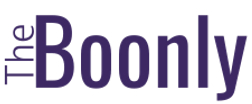May 29, 2024
Hello friends,
I love my Sunday morning walks around the neighborhood. Not only because the city, otherwise loud and chaotic, is so serene and quiet, which brings me peace, but also because I know this lull won’t last long.
In fact, I think this is one of the biggest differences between early walks in nature and those in the city.
When in nature, I expect it to stay calm.
But in the city, I expect it to get louder and louder with each passing moment — there are more and more people in line for coffee, more and more kids in the park, more and more cars in the streets.
It’s a matter of minutes before the city is fully awake and I just want to soak in the moment of its awakening.
Go outside and enjoy your walk. It’s Sunday.
Irena Spegar
Idea of the Week
REST IS MORE THAN RELAXATION
Once upon a time, when we started to measure our work by the hours we put into it, we began to see time as a currency. We began to view time as something we spent, rather than something that simply passed. As time evolved into a precious commodity that could be exchanged for money, our leisure time started to seem frivolous. The idea started to form that if you weren’t creating something with your time, you were just wasting it.
But today, we know that whether we see rest as a noble leisure — done for its own sake — or something that helps us recharge for more work, we need it. If we want to be our most productive, creative and content selves, we need both a good work ethic and a good rest ethic. If work ethic is an inhale, then rest ethic is an exhale. No one can keep inhaling forever.
This brings us to a question. What is rest?
Rest isn’t only vacation and relaxation. It’s any practice that keeps us from feeling overwhelmed and overworked. Counterintuitively, sometimes the best rest for doing one thing is doing another thing. Our minds don’t usually need less activity, what they need is to change things up.
Also, leisure time is highly personal. Some people need active rest, engaging in activities that are enjoyable and stimulating, but not necessarily productive, such as hobbies or sports. Others need passive rest, focusing on activities that require minimal mental effort, like reading or watching a movie. And some need deep rest, choosing activities that promote relaxation and recovery, such as meditation or sleeping.
Here are 4 factors of rest that we found in the book Time Off
1. Relaxation
It’s essential to let our mind and body decompress. However, mere relaxation doesn’t suffice for a truly rejuvenating rest.
2. Control
Feeling like we’re in charge of how we spend our time and focus is precious for recovery. There’s a lot in our day-to-day lives we can’t control, but when it comes to rest time, we have more control.
3. Mastery
Activities don’t need to be easy to enjoy them. On the contrary, they sometimes need to be challenging and mentally engaging to get us into a flow state. It can be reading, it can be learning, it can be practicing.
4. Detachment
Perhaps the key ingredient for a truly refreshing break is the capacity to set aside whatever task we’re taking a breather from, and fully immerse ourselves in something different. It’s all about engaging in a new challenge and being fully present in that moment.
WHERE TO FIND THIS IDEA:
- Time Off: A Practical Guide to Building Your RestEthic and Finding Success Without the Stress by John Fitch and Max Frenzel

Sundaying Kit
PONDER 
We’ve talked about the importance of rest in our previous issues. This week we’ve been pondering a related topic: why do we feel guilty when we rest? Staring into one spot and zoning out for 15 minutes is not a sin, going for a walk without a plan is not a sin, reading a book without implementing it (simply reading for the sake of reading) is not a sin. Yet we feel guilty.
Why does having free time feel like we are not productive and why do we want to keep ourselves busy so badly?
TRY 
Here’s a tip that’ll help you with public speaking, from a presentation to a conference to a meeting to a TEDx talk (okay maybe we’re not there yet). We’ve confirmed, focusing on nodders while you speak works. Thank you, nodders!
USE 
The future is closer than ever and each new AI we get to know gives us a glimpse of how this future might be. Character.AI lets you create any character you want that you and other users can communicate with. Need a learning partner to ask you questions? No problem. Need a therapist? They got you covered. Collaboration between humans and robots is just getting started and it feels surreal.
LISTEN 
“What if” is a tough game to play. It’s also a never-ending game because there’ll always be a new “what if” in every situation you find yourself in. But what if (we said it), instead of trying to win, you stop playing it all together. Here is a Savvy Psychologist podcast episode about it. One easy solution to stop asking “what if” is to keep in mind the difference between probability (likely to happen) and possibility (could happen). Forget possibility, focus on probability.
Sunday With…

BEN PUTANO
The author of Great Founders Write: Principles for Clear Thinking, Confident Writing, and Startup Success. He also runs Damn Gravity Media, a book publisher for entrepreneurs and creatives.
Sundays are my one true off day. I enjoy them quite a bit.
My week is filled with work. Saturdays are dedicated to exercise, ultimate frisbee practice, and hanging out with my wife and friends.
Sundays are the only day where I don’t set an alarm or make plans. I start the day slow and see where it goes. Typically that means drinking coffee and reading in bed, then going for a walk with my wife and dog. Sometimes we’ll go explore a new neighborhood in Chicago or go grab lunch at a place we’ve been dying to try. Sometimes I just take a nap.
Sunday evenings include a trip to the grocery store and a nice dinner at home. Then we’ll watch the next episode of whatever show we’re obsessed with (currently ‘Alone’) and then call it an early night.
But right before I go to bed, I switch back into work mode. I make a simple list of everything I need to do in the upcoming week, then choose one thing I want to get done Monday morning. Then I schedule the rest of my week with my productivity coach on Monday afternoon.
Sundays are truly a day of rest for me. It’s my day to decompress and re-center myself.

Weekly Reads
1. How to make networking events less awkward: Be a croissant, not a bagel – NPR
Networking events are back and they are as awkward as ever. If you chose to participate in one, what would you be: a croissant or a bagel? Based on the article, when at an event, croissants are open to welcoming new people into their group. Bagels are closed (just as their shape suggests) – they know each other well, they don’t let newcomers into their circle and they make you wonder why the heck they gathered at a networking event when they could’ve just gone for a beer somewhere.
Don’t be a bagel. Instead, be a croissant, let people into your space.
2. A New Dimension to a Meaningful Life – Scientific American
Do you know that feeling of bliss as you gaze upon the beauty of the sunset or as you spend a quiet evening at home with the person you love? That feeling of appreciation for “the ordinary” is one of the secrets to a meaningful life. It’s a very common belief that having a greater purpose leads to a meaningful life. What we tend to forget is that finding and admiring beauty in the mundane is equally important. It makes you realize your life is not a boring average life, but it’s special in all its shapes and forms.
3. The workers leaving their dream jobs – BBC Worklife
His dream job was to become a pastry chef at a famous restaurant. His dream came true, but working for a high-end restaurant for £5.95 an hour and 70 hours a week wasn’t an option in the end. What do you do when your dream job doesn’t pay bills and leaves you overworked? This is a question we can all ask ourselves, especially in the post-pandemic era that has popularized the “leave your boring daily job and follow your passion” mindset.

